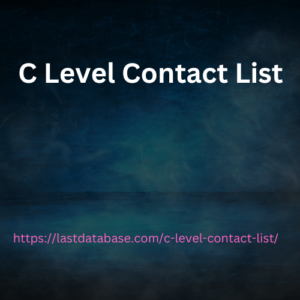|
|
Try to understand how they are related, because what you really want to know when crawling a page is: what is this page about, is this a good example of a page about this topic? The second part really stands out. To what extent is any given entity the subject of the content? It's amazing how one person creates content that actually has nothing to do with anything. I think we've all been there. You're searching and then you come to a page and you're like, this is too vague.
This is too broad. This is said to be about one thing, but is actually about another. I didn't find what C Level Contact List I needed. As marketers, we often get on the other side of trying to get our customers to say what their product is actually used for on their website, or say, I know you thought you created a guide for the holidays. But you actually wrote one paragraph about your vacation, and then seven paragraphs about your new tool. This is not actually a blog post about the holidays. This is a piece about your tools. These are the battles we face as marketers. Natural Language Processing Fortunately, there are a number of different ones available now for understanding natural language processing.

There is actually a Probably not. But you can test it. Enter a piece of content and see which entities can be extracted from it and how important each entity is considered to the overall content piece. Besides, to what extent is this content about this thing? So this natural language processing (which you can try for free), if you want to build a tool with it, is actually not expensive for , it assigns each entity a significant score that can be extracted to represent : Okay, how sure are we that this piece of content is about this thing, as opposed to just containing it.
|
|